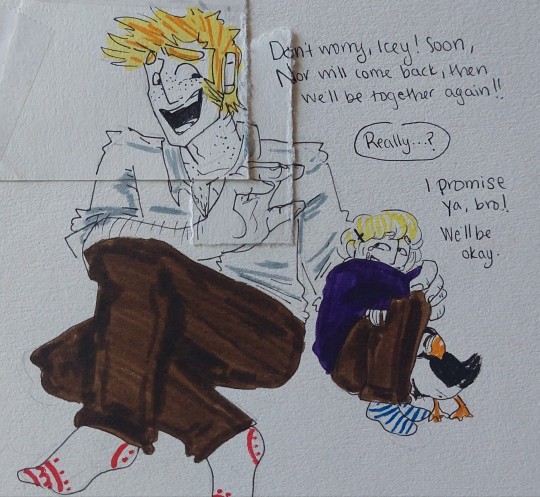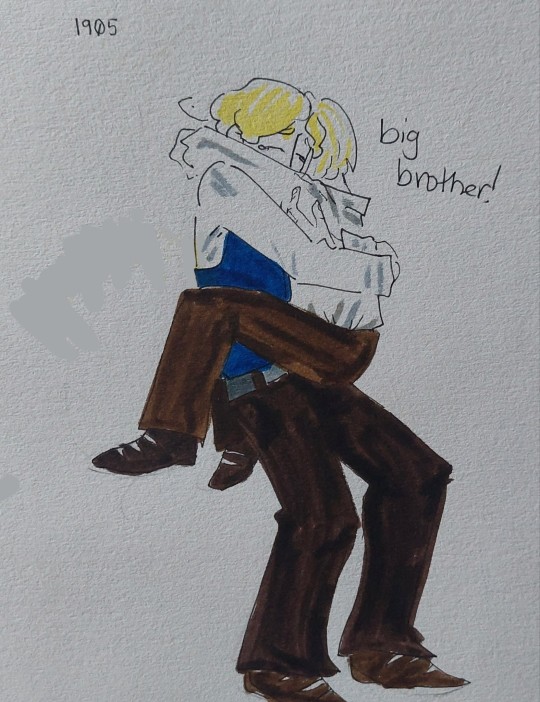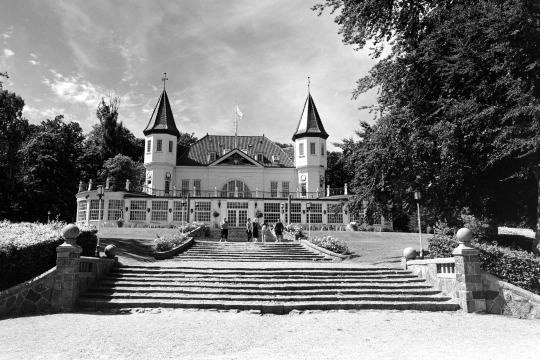#Denmark Developers
Explore tagged Tumblr posts
Text
Consequently, some of the most innovative software development companies could be located in this territory –the territory called Denmark. They are in the top 11 due to; professional teams with extensive knowledge and unreal ceaseless innovation as well as their cumulated dedication that sees them deliver impeccable software solutions that are need-sensitive to the clients. Here indeed, the best of partnering with any of these companies a client can get a high-quality software solution to thrive and succeed. Read more.
0 notes
Text
"A net-zero power system is closer than we think.
New research, published by RMI, indicates that an exponential surge in renewable energy deployment is outpacing the International Energy Agency’s most ambitious net-zero predictions for 2030.
That’s right: Surging solar, wind, and battery capacity is now in-line with net-zero scenarios.
“For the first time, we can, with hand on heart, say that we are potentially on the path to net zero,” Kingsmill Bond, Senior Principal at RMI, said. ��We need to make sure that we continue to drive change, but there is a path and we are on it.”
And that’s really good news.
Exponential growth in renewable energy has put the global electricity system at a tipping point. What was once seen as a wildly daunting task — transitioning away from fossil fuels — is now happening at a faster pace every year.
Based on this new research, conducted in partnership with the Bezos Earth Fund, RMI projects that solar and wind will supply over a third of all global electricity by 2030, up from about 12% today, which would surpass recent calls for a tripling of total renewable energy capacity by the end of the decade.
Global progress in the renewable energy sector
China and Europe have been leading the way in clean energy generation, but the deployment of renewable energy has also been widely distributed across the Middle East and Africa.
Research from Systems Change Lab shows that eight countries (Uruguay, Denmark, Lithuania, Namibia, Netherlands, Palestine, Jordan, and Chile) have already grown solar and wind power faster than what is needed to limit global warming to 1.5°C, proving that a swift switch to renewable energy is not only feasible — it’s entirely achievable.
In order to make that switch, globally, wind and solar need to grow from 12% to 41% by 2030. Denmark, Uruguay, and Lithuania have already achieved that increase in the span of eight years.
Meanwhile, Namibia, the Netherlands, Palestine, Jordan, and Chile have grown solar and wind energy at sufficient rates for five years...

The economic impact of climate progress
Not only is this an exciting and unprecedented development for the health of the environment, but this rapid transition to clean energy includes widespread benefits, like jobs growth, more secure supply chains, and reductions in energy price inflation.
This progress spans both developing and developed countries, all driven to accelerate renewables for a number of different reasons: adopting smart and effective policies, maintaining political commitments, lowering the costs of renewable energy, and improving energy security.
And with exponential growth of clean energy means sharp declines in prices. This puts fossil fuels at a higher, uncompetitive cost — both financially and figuratively.
RMI suggests that solar energy is already the cheapest form of electricity in history — and will likely halve in price by 2030, falling as low as $20/MWh in the coming years. This follows previous trends: solar and battery costs have declined 80% between 2012 and 2022, and offshore wind costs are down 73%."
-via Good Good Good, July 12, 2023
Let me repeat that:
For the first time in history, we are on an actual, provably achievable path to net zero emissions
#electricity#renewable electricity#renewable energy#net zero#climate crisis#fossil fuels#wind power#solar power#battery technology#uruguay#denmark#lithuania#namibia#netherlands#palestine#jordan#chile#global development#good news#hope
362 notes
·
View notes
Text

Symmetry (2022)
#lake#film photography#black and white#photographers on tumblr#analog#landscape#Silkeborg#original photographers#35mm#home developed film#nikon f2#ilford delta 100#denmark
33 notes
·
View notes
Text
have any Tumblr linguists seen this yet?
youtube
It was genuinely a very interesting and informative video when I saw it.
Really visualizes and makes audibly clear how, no matter how loose and thin the connections are
We're all greatly connected through the great web of time
Really makes you consider what could've been is English stayed more close to it's Germanic roots, or what the East Germanic languages would sound like today if they were given the best chance at surviving and evolving
Seriously, if you're an English Speaker, German, Dutch, or some Scandinavian ethnicity, check this video out. It's well worth the time
#linguistics#Linguists#Tumblr linguists#Linguists on Tumblr#Germanic#Dialect#Language#Germanic Languages#Words#Spoken words#Youtube#Linguistic comparison#Linguistic analysis#linguistic anthropology#linguistic development#Germany#netherlands#Denmark#America#England#Sweden#Norway#Saxony#Frisian#friesland#Saxon#anglo saxon
15 notes
·
View notes
Note
After seeing your post about Sweden's human name, do you mind explaining what your favorite human names for the other Nordics are and your reasoning?
Especially Norway -- I'm still rather fond of Lukas for familiarity's sake, but would love to have a better alternative! I understand why people don't like Bondevik after a quick search. I've seen people use Thomassen recently and have started using that instead
Sure! I'll also add links to posts made by users from these countries if you need a more reliable source (except Iceland, I haven't seen an Icelandic Hetalian on Tumblr yet).
Norway
If you're looking for infomation about anything relating to Norway, not limited to names but also history, traditions and modern culture, YOU NEED TO TALK TO OUR RESIDENT NORWEGIAN @ifindus. They have done university-level research in Norwegian history and I am constantly learning new things about Norway from their posts, which says a lot as someone who has half his family from Norway. It's thanks to Findus that I learned about a very common misconception about Norwegian names that I will explain below!
Unlike people from English-speaking countries, Danes, Swedes, and Finns, Norwegians do not use "middle names" in the sense of "alternative first names that are mostly ignored except on official documentation". It's very common for creators to give Norway a name like "Lukas Øyvind Haugland" with the idea that he goes by Lukas in daily life, and Øyvind is a mostly unused middle name. But that's not how it works in Norway! Instead, both Lukas and Øyvind will be recognized as his first names of equal priority, and he will be referred to using the double name Lukas Øyvind. Findus can explain this better than I can, but you cannot simply smash two names together to form a Norwegian double name, as many name combinations, such as Lukas Øyvind, sound ridiculous. Paraphrasing Findus' words, there are no definite rules that make certain double names realistic or silly, it's mostly a feeling that the name "sounds good". There are however common patterns, such as the first half having less than or equal syllables to the second, both names having the same "vibe", and not having too many consecutive consonants.
Thanks to Findus' advice, I recently changed my name for Norway to drop the "middle names", cutting it down to Sigurd Fjellanger. Sigurd, an Old Norse name meaning "victorious guardian", is the most popular first name among Norwegian creators because of its uniqueness to Norway and use in all time periods. Fjellanger is my personal choice, as I want a nature name for Norway that refers to his home region. Nature names in Norway often indicate where a person's ancestors were from as they were historically chosen from names of towns and farmland. Fjellanger means "mountain fjord" and is associated with coastal western Norway, which is where my Sigurd's hometown is. Findus uses the last name Nordvik which means "northern bay" and is not associated with a specific region (their Norway moves around the country and does not have a fixed hometown). Patronymics (names ending in -sen) don't have strong regional associations and Thomassen is a common, neutral-sounding name.
It seems like I have unintentionally written a long post again. Other characters under the cut.
Sweden
The other Nordic countries use "middle names", but like in real life, these extra names will never be seen outside of these name posts. My full name for Sweden is Björn Axel Johan Stjernqvist because he's my country and I can make fun of him. Björn is a very Swedish Old Norse name meaning "bear" while Stjernqvist, meaning "star branch", is a lame reference to his Hetalia name that also contains the word "star". 95jezzica is from Sweden and recommends the classic Svensson as his last name, but I personally avoid giving very common names to characters in case I know or will meet someone with that name. I also prefer to choose nature names unless there is a meaningful (parental) connection to the name in the patronymic. Double names are also used in Sweden, but they are much rarer and are associated with the older generation. Swedish double names are connected with a dash rather than a space, like Lars-Erik.
Denmark
My beloved Denmark has the name Søren Mathias Holgersen. Mathias is not an Old Norse name. It originates from Latin and means "gift from God", which is what he is to me. Holgersen is a reference to the legendary Danish hero Holger Danske. Some creators think that the name Mathias is inaccurate for Denmark in all periods, but that's only true for the pre-Christianization era. There are 22,7k people currently named Mathias in Denmark in 2023 (this is not including the alternate spellings). In fact, none of the popular alternative names for Denmark that begin with M, Mikkel and Magnus, are of Old Norse origin either. But that's alright, because Denmark was the most strongly influenced by continental Europe culturally and has the weakest Norse influence out of the Scandinavians. This post by someone-you-do-not-know from Denmark discusses what's wrong with the Hetalia name suggestions for Denmark and offers additional suggestions. The OP has a personal reason for disliking the name Mathias, but the name is otherwise alright to use.
Finland
I unfortunately don't speak Finnish and don't know much about Finnish naming traditions, so I use a name that has been personally recommended by Finns and is quite close to the Hetalia name: Timo Kalevi Väisänen. The middle name Kalevi was randomly mentioned by ask-finny from Finland and I'm not particularly attached to it either, so I'm open to changing it. Nordickies is also from Finland and has made two very helpful posts about analyzing Finland's Hetalia name and resources for researching Finnish names.
Iceland
Iceland has a very strict naming law which could make choosing his name easier or more difficult depending on how you look at it. The first name Emil is permitted on Iceland, but it's a modern trend name that doesn't have an Icelandic history, its use began after the release of Astrid Lindgren's book Emil i Lönneberga. Steilsson is illegal as it would mean that Iceland's father was named Steil, which is not a permitted name (nor did it ever exist in the Nordic countries). Like Finland, I kept his Hetalia initials and gave him the name Eiríkur Stefánsson.
#ask#hetalia#hws denmark#hws sweden#hws norway#hws finland#hws iceland#aph denmark#aph sweden#aph norway#aph finland#aph iceland#character development#the more you know#long post#I just noticed the coincidence of Stjernqvist because names like these were created by smashing two often unrelated words together#but in the modern day Star and Branch are related terms#in the context of Star Branch Clone Fork Pull Request that is#Björn is a software engineer to me and I'm laughing so hard at his tangentially programmer name
91 notes
·
View notes
Text
Researchers detect a new molecule in space
New Post has been published on https://thedigitalinsider.com/researchers-detect-a-new-molecule-in-space/
Researchers detect a new molecule in space


New research from the group of MIT Professor Brett McGuire has revealed the presence of a previously unknown molecule in space. The team’s open-access paper, “Rotational Spectrum and First Interstellar Detection of 2-Methoxyethanol Using ALMA Observations of NGC 6334I,” appears in April 12 issue of The Astrophysical Journal Letters.
Zachary T.P. Fried, a graduate student in the McGuire group and the lead author of the publication, worked to assemble a puzzle comprised of pieces collected from across the globe, extending beyond MIT to France, Florida, Virginia, and Copenhagen, to achieve this exciting discovery.
“Our group tries to understand what molecules are present in regions of space where stars and solar systems will eventually take shape,” explains Fried. “This allows us to piece together how chemistry evolves alongside the process of star and planet formation. We do this by looking at the rotational spectra of molecules, the unique patterns of light they give off as they tumble end-over-end in space. These patterns are fingerprints (barcodes) for molecules. To detect new molecules in space, we first must have an idea of what molecule we want to look for, then we can record its spectrum in the lab here on Earth, and then finally we look for that spectrum in space using telescopes.”
Searching for molecules in space
The McGuire Group has recently begun to utilize machine learning to suggest good target molecules to search for. In 2023, one of these machine learning models suggested the researchers target a molecule known as 2-methoxyethanol.
“There are a number of ‘methoxy’ molecules in space, like dimethyl ether, methoxymethanol, ethyl methyl ether, and methyl formate, but 2-methoxyethanol would be the largest and most complex ever seen,” says Fried. To detect this molecule using radiotelescope observations, the group first needed to measure and analyze its rotational spectrum on Earth. The researchers combined experiments from the University of Lille (Lille, France), the New College of Florida (Sarasota, Florida), and the McGuire lab at MIT to measure this spectrum over a broadband region of frequencies ranging from the microwave to sub-millimeter wave regimes (approximately 8 to 500 gigahertz).
The data gleaned from these measurements permitted a search for the molecule using Atacama Large Millimeter/submillimeter Array (ALMA) observations toward two separate star-forming regions: NGC 6334I and IRAS 16293-2422B. Members of the McGuire group analyzed these telescope observations alongside researchers at the National Radio Astronomy Observatory (Charlottesville, Virginia) and the University of Copenhagen, Denmark.
“Ultimately, we observed 25 rotational lines of 2-methoxyethanol that lined up with the molecular signal observed toward NGC 6334I (the barcode matched!), thus resulting in a secure detection of 2-methoxyethanol in this source,” says Fried. “This allowed us to then derive physical parameters of the molecule toward NGC 6334I, such as its abundance and excitation temperature. It also enabled an investigation of the possible chemical formation pathways from known interstellar precursors.”
Looking forward
Molecular discoveries like this one help the researchers to better understand the development of molecular complexity in space during the star formation process. 2-methoxyethanol, which contains 13 atoms, is quite large for interstellar standards — as of 2021, only six species larger than 13 atoms were detected outside the solar system, many by McGuire’s group, and all of them existing as ringed structures.
“Continued observations of large molecules and subsequent derivations of their abundances allows us to advance our knowledge of how efficiently large molecules can form and by which specific reactions they may be produced,” says Fried. “Additionally, since we detected this molecule in NGC 6334I but not in IRAS 16293-2422B, we were presented with a unique opportunity to look into how the differing physical conditions of these two sources may be affecting the chemistry that can occur.”
#2023#ALMA#Astronomy#Astrophysics#atoms#chemical#chemistry#college#complexity#data#Denmark#detection#development#Discoveries#earth#ether#fingerprints#form#France#how#interstellar#it#learning#Light#Machine Learning#measure#measurements#members#mit#molecules
30 notes
·
View notes
Text


By the Kaktus Towers in Copenhagen.
#my photos#copenhagen#københavn#denmark#flowers#wild flowers#nature photography#simon#photo of the day#city planning#urban design#urban development#kaktus towers#native plants#colorful#super bloom#plants#plant life#bloom#blossom#bouquet#spring
8 notes
·
View notes
Text





family, part 2
#hetalia#hetalia world stars#aph denmark#hws denmark#aph norway#hws norway#dennor#aph iceland#hws iceland#whale brothers#anko family#historical hetalia#aph sweden#hws sweden#aph finland#hws finland#sufin#denmarks character development is so amazing
138 notes
·
View notes
Text
I saw @apersonwholikeslotus share some stuff about their ghosts au, and it inspired me to share a little bit more about the ghosts au I’ve been working on myself for well over a year now 💕. Big thank you to @ifindus and @nordickies as well as my friend Third over on discord for helping me out with this AU.
Ghosts, a hetalia AU.
ÅLAND/GERMANY: alive
In this AU, Linnea (Åland) & Ludwig (Germany) take Alison & Mike’s rolls. A young couple who move into a Manor House after a very far off relative of Linn’s passes away. After an accident, Linnea is left with the ability to see ghosts, unlike Ludwig who cannot.
DENMARK: 800s
A Viking arriving in britain right before the Danelaw began. Mathias never actually made it to battle, he tripped and fell onto his axe before he got there. Mathias is the oldest of the ghosts, but he doesn’t speak much English besides a few words he’s picked up overtime. Interestingly, he has an extreme reaction whenever someone mentions him helmet not having horns on it. Mathias likes to upkeep his Viking traditions, and forces Linnea to run a bath for him to sit in every week. Mathias has the ghostly ability to be able to touch and move things with enough effort.
NYO SCOTLAND: 1300s
An overly opinionated woman for her time, Bonnie was married off to a wealthy Danish man when she was young. The pair didn’t get along, she found him intolerable, and fucking stupid. Bonnie was poisoned by her husband on their trip down to the north of england. The second oldest ghost after Mathias, but the two struggled to interact with one another. Bonnie can be seen very faintly in photographs.
FAROE ISLANDS: 1400s
Gyða is the ghost I personally consider to have the most tragic backstory. The daughter of a king, and his servant mistress who had been stolen from her home. Gyða grew up never knowing who her dad was, and believing her existence was pointless. She was raised a servant, and threw her out of the highest window of the house on her 20th birthday. Gyða becomes good friends with Bonnie, who in her death helps her find her worth, which allows her to make peace and move on. Gyða’s voice can be heard by humans so long as she shouts/screams/laughs loud enough. She falls from the highest window in the house every night, recreating her death.
NYO FRANCE: 1536
A wealthy Tudor woman, heavily inspired by Anne Boleyn. Marianne was a mistress of Henry VIII between Boleyn and Seymour. She was beheaded after being accused of treason. Her ghost body can never find her head, but she does have the ability to float. She had a strong friendship with Cornwall, a pirate ghost who died not too long after her, who made peace before Linnea and Ludwig moved in.
NORWAY: 1662-1663
Aksel moved to britain alongside his family as a travelling band. They settled into a village, but were not very trusted or popular because of their pagan beliefs. When accused of witchcraft, aksel was the only one of his family who did not manage to escape and sail off to Iceland. He was burnt at the stake. He becomes best friends with Denmark after being harassed by the Viking. But he winds up learning old Norse from being unable to escape him. The two stick together like glue, aksel is more thankful for Mathias than he lets on. When stood close to Aksel you feel extremely hot.
SWEDEN: 1814
A figure of the Swedish government, Björn is in England to discuss the Sweden-Norway war and possible unification of the countries, along side his son. After a heated argument between him and his son, who will live on to become an infamous fictional serial killer in Sweden, he suffocates Björn in his sleep using his pillow. When we meet björn, he has no idea who killed him, and takes intense pride in his son. Björn likes to fill Aksel in on the “current” political system of Scandinavia (though, it is now very outdated). Björn has the ability to fiddle with lighting.
ENGLAND: WWII
What can I say? Cap is my favourite character. And the design is already made for me! I think Arthur was shot dead. He, similar to cap, had a lover who left the station to fight in the war. He makes peace and moves on when his former crush comes back to visit the house, and when Linnea goes out to talk to him, Arthur finds out his love was reciprocated.
FINLAND: 1986
The youngest of the ghosts! Aino was in britain on holiday, taking a tour of the old manor. She gets distracted by something, and in an attempt to hurry and reconnect with the group, they cross a frozen lake, which breaks and they die of hypothermia in the water. Aino herself is actually a relative of Linnea, her auntie who she never got to meet. Aino becomes an unexpected friend to Arthur, being the newest ghost the pair of them team up to try and get to the bottom of how the rest of the ghosts passed away. Aino is the opposite of aksel, when you stand too close to her, you feel colder.
There is more I could touch upon, but here you go!! My ghosts au, which I’ve been wanting to share for way too long now. You can probably spot all the ways I took inspo from the og show.
#god I love this au smmmm#some characters are a LOT more developed than others#but hehehehe#didn’t even get to touch upon the ScotNor in it 👀#hetalia#bbc ghosts#ghosts au#aph denmark#nyo scotland#aph faroe islands#nyo france#aph norway#aph sweden#aph england#aph finland#nyo finland#aph åland islands#aph germany
21 notes
·
View notes
Text
uaaahggg having a young adult sibling with mental health issues is so stressful, like will you be okay living on your own or will i get an ominous call from mom and dad about how no one has heard from you for ?? days like last time. I don't need this when I have. A dissertation to write so please PLEASE take care of yourself and don't do anything self destructive girlie
#sister is going to denmark for six months#last time she lived on her own she developed an ed and didnt leave her room for a week lol
3 notes
·
View notes
Text
My 2023 was wild, not in a way that anyone would use the term "wild" except me
#this year i travelled to finland. met a beloved mutual there#next week after that travelled to sweden/denmark (like copenhagen & malmo lol) to meet my old friend (with a recent friend lol)#then like. in spring we had this active/fitness challenege that kind of speed-run developing friendship with my coworkers#that challenge lasted 3 months i think?#also bc of it i went on walks frequently around one pond and was observing day by day a swan pair nesting their eggs until eventually#i saw their babies#also went on a 19km hike and 26km hike during the event that was crazy. swore to never do it again#ALSO participated in a trail running event (6km) and swore to never do it again#then i defended my thesis and gratuated#started thinking about and applying for phd#went on a 3 day roadtrip to lithuania with family and aunts family#following week went on a 3? day roadtrip to poland with coworkers AND FILMED THEIR ENGAGEMENT#i think after that i spent some time in a coastal town to see my cousin (from sweden)#and then her; my sister and me travelled to sweden (again for me!) to bring her back home and to give my sister her first travel with plane#then i got back and got into a phd programme.#broke my car; fixed it; gave it to my sister and bought a new car#buying a new car also was a fun trip with my engaged coworkers (but within country borders and lasted a day)#then my phd studies started and with it a new job#which i realized i should quit 2 weeks in lol#then the end of year was calmer. i did have small trips for like christmas tree igniting in a small town and#coworkers birthday party that was pretty fun#thinking back it really seems wild to me
7 notes
·
View notes
Text
You read about a current debate in US context, forget that it mainly concerns people in the US, and that the debate on the same broader topic in your own country might be centred about something else. You then start arguing with someone when the topic is brought up, only to realise you both actually agree, but haven really been discussing the same problem.
Anyway if you’re from the US and you ever wanted to know what tumblr feels like from a non-USAmerican perspective (please note that the rest of the world is not a monolith either and none of these apply without exception):
Everybody’s talking about brands and stores you’ve never seen in real life. You generally assume they exist, but they might as well be one giant prank the rest of the internet is in on.
You find a post that just sounds wrong. It makes no sense. It’s like OP lives in a weird alternate reality. 9/10 times, it’s just some USAmerican Thing.
You’re still not entirely sure how much an inch is. Or a foot. Or even how many of the former there are in the latter. You maybe know your height in feet and inches.
You have no idea how much a pound is. You’d also like to know how the fuck pound shortens to lbs.
What the fuck is “military time”
Somebody talks about some legal process or something similar. They don’t mention which country’s legal system this pertains to. You know anyway.
People talk about politics. None of it pertains to you. Many posts contain guilt tripping. “How can you not care about this?? Why won’t you reblog this?? People need to know this about x candidate for y position!” You’re busy trying to stay on top of the political landscape in your own country.
You pick up some random slang from the internet. Monkey see monkey do. You’re called racist. You didn’t know it was AAVE. You learnt it from black letters on white background, not from the mouths of people whose faces you could see. How would you have known? You try to unlearn it.
People tell you that you must publicly denounce Chick-fil-A or you’re homophobic. You don’t even know what a Chick-fil-A is.
People say you don’t know LGBTQ+ history. What they mean is you don’t know USAmerican LGBTQ+ history. Nobody cares about your country’s history.
You’re “called out” on using an “offensive” term. It’s (a direct translation of) a completely harmless word where you live.
People expect you to have an idea of how far apart 2 USAmerican states are. You barely know geography past your country’s immediate neighbors.
You randomly switch between British and American spellings. Nothing’s real and there are no rules.
People talk about multiple hour car rides and you get twitchy just thinking about it. You suddenly understand why USAmerican cars are so big.
Somebody talks about school shooting drills. You only ever had fire alarm drills.
You see a cool statistic. The study’s only about the US. It’s unfortunately of no use to you.
People misuse/misspell words and names from your native language. It’s tiring.
(You feel sorry for the French. Nobody should be allowed to mangle the word déjà vu like that.)
You’re still not over the fact that USAmerican school children are supposed to say that pledge thing every morning. You’re never getting over that.
You still don’t know why the men are fresh or what the fuck a sophomore is.
Who the fuck pays up first and then fills up gas??? That’s made up, right??
Everybody has a weird obsession with some comfort food you’d never even heard of before you signed up here.
Fellow non-USAmericans, please add anything else you can think of.
#the pain of tumblr#I very nearly got into a screaming match with my mom about abortion#because I didn’t know what the debate in denmark actually was about#and was at the moment just horrified by the development in USA#not knowing that the debate in Denmark was about raising the abortion “deadline’#which is a whole other debate#politics#USA
116K notes
·
View notes
Text

To the castle (2022)
#Århus#film photography#black and white#photographers on tumblr#architecture#analog#landscape#castle#original photographers#35mm#home developed film#nikon f2#ilford delta 100#denmark
29 notes
·
View notes
Text
0 notes
Text
Drafted this post to reply to @ingasolja headcanons for the Nordics' weaknesses to suggest a weakness for Timo (Finland) who didn't get one and Mathias (Denmark) because I don't think he would be mentally stuck in the Kalmar Union period forever. But since it's so long and already a post, why not make it a post. (I use human names so it's clear that I'm talking about the characters, not their countries.)
On the surface, Timo is a lot like Björn (Sweden) as he's extremely stubborn and refuses to ever admit that he's wrong. However, while Björn's stubbornness is caused by his Unwarranted Swedish Self-Importance that makes him think he is the most brilliant mind to walk the earth, Timo's is caused by his massive victim complex that he built as a psychological defense during the time when his country was ruled by others and had to fight hard for its independence. Timo thinks that the world is full of those who are ready to prey on him at any moment, so he treats every negative interaction as an attack against him. Even with a minor disagreement in opinions, he becomes very defensive and turns to his favorite ad hominem: that the person he's arguing with hasn't suffered as much as him and doesn't know what the world is really like. Timo's defensive attitude also makes him extremely competitive, especially against Björn. He's a sore loser and can stay upset for a very long time after losing a competition, while he becomes very smug after winning, which makes the other Nordics reluctant to play against him. Because a big part of Timo's worldview comes from how he sees himself as someone whose life was harder than everyone else's, he can be insensitive towards and downplay the struggles of others to place the spotlight on his own.
As for Mathias, when I studied the events of the Kalmar Union and later, I don't get the impression of someone who blindly thinks of himself as a leader - rather, I see someone who is paranoid about becoming powerless. The Kalmar Union has not existed for 500 years and Denmark's "leadership" over the Nordic countries is a long-lost memory. Leadership to Mathias is a means to an end to hold on to power. Mathias sees the world in a ruthless and cold way, where he is either someone who uses others, or he's the one getting used. In the past, he used to be too confident, which led to others learning about his weaknesses and giving him a crushing defeat that, to this day, he hasn't completely recovered from. He retreated into his shell after that, and developed a carefully crafted, friendly and humble persona that would not reveal his weaknesses. Mathias is very calculative in his social interactions, the way he presents himself and predicts the intentions of others. This makes him assume the worst of others and unintentionally hurt them when he is skeptical of someone who genuinely wants to be kind. He also became inauthentic and disconnected from his true identity when it's buried under layers of self-defense. Those who are aware of this don't want to get close to Mathias because they're afraid they will be manipulated and lied to by him, so he finds it difficult to form deep relationships with others.
22 notes
·
View notes
Text
Three MIT students named 2026 Schwarzman Scholars
New Post has been published on https://thedigitalinsider.com/three-mit-students-named-2026-schwarzman-scholars/
Three MIT students named 2026 Schwarzman Scholars


Three MIT students — Yutao Gong, Brandon Man, and Andrii Zahorodnii — have been awarded 2025 Schwarzman Scholarships and will join the program’s 10th cohort to pursue a master’s degree in global affairs at Tsinghua University in Beijing, China.
The MIT students were selected from a pool of over 5,000 applicants. This year’s class of 150 scholars represents 38 countries and 105 universities from around the world.
The Schwarzman Scholars program aims to develop leadership skills and deepen understanding of China’s changing role in the world. The fully funded one-year master’s program at Tsinghua University emphasizes leadership, global affairs, and China. Scholars also gain exposure to China through mentoring, internships, and experiential learning.
MIT’s Schwarzman Scholar applicants receive guidance and mentorship from the distinguished fellowships team in Career Advising and Professional Development and the Presidential Committee on Distinguished Fellowships.
Yutao Gong will graduate this spring from the Leaders for Global Operations program at the MIT Sloan School of Management, earning a dual MBA and a MS degree in civil and environmental engineering with a focus on manufacturing and operations. Gong, who hails from Shanghai, China, has academic, work, and social engagement experiences in China, the United States, Jordan, and Denmark. She was previously a consultant at Boston Consulting Group working on manufacturing, agriculture, sustainability, and renewable energy-related projects, and spent two years in Chicago and one year in Greater China as a global ambassador. Gong graduated magna cum laude from Duke University with double majors in environmental science and statistics, where she organized the Duke China-U.S. Summit.
Brandon Man, from Canada and Hong Kong, is a master’s student in the Department of Mechanical Engineering at MIT, where he studies generative artificial intelligence (genAI) for engineering design. Previously, he graduated from Cornell University magna cum laude with honors in computer science. With a wealth of experience in robotics — from assistive robots to next-generation spacesuits for NASA to Tencent’s robot dog, Max — he is now a co-founder of Sequestor, a genAI-powered data aggregation platform that enables carbon credit investors to perform faster due diligence. His goal is to bridge the best practices of the Eastern and Western tech worlds.
Andrii Zahorodnii, from Ukraine, will graduate this spring with a bachelor of science and a master of engineering degree in computer science and cognitive sciences. An engineer as well as a neuroscientist, he has conducted research at MIT with Professor Guangyu Robert Yang’s MetaConscious Group and the Fiete Lab. Zahorodnii is passionate about using AI to uncover insights into human cognition, leading to more-informed, empathetic, and effective global decision-making and policy. Besides driving the exchange of ideas as a TEDxMIT organizer, he strives to empower and inspire future leaders internationally and in Ukraine through the Ukraine Leadership and Technology Academy he founded.
#000#2025#agriculture#ai#artificial#Artificial Intelligence#Assistive robots#Awards#honors and fellowships#Brain and cognitive sciences#bridge#Business and management#Canada#carbon#career#Career Advising and Professional Development#China#Civil and environmental engineering#cognition#computer#Computer Science#consulting#data#Denmark#Design#development#dog#double#driving#energy
0 notes